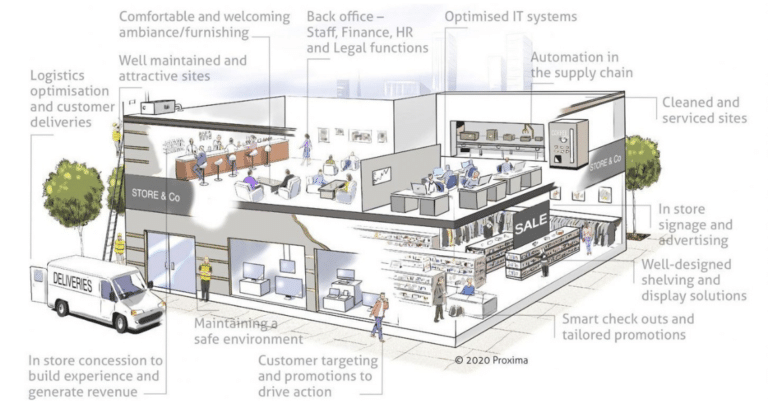GNFR (goods not for resale) is, like the name suggests, any goods that a business may use that aren't then sold on as a product. For sake of example, wall signs, air conditioning, store furnishings and marketing materials are all GNFR.
It is an under mentioned part of the customer buying process, and the scale of it is often overlooked.

But isn't it irrelevant?
No, not at all. GNFR represent an extremely important part of the customer buying process. You are more likely to buy from a clean, well-lit shop, than you are from anywhere else. Ensuring an easy, straightforward buying process is enabled by GNFR procurement.
A solid GNFR procurement strategy sets in stone the basis for a solid customer buying process. The importance of it can't be underplayed, as everything from marketing materials such as banners, wall graphics persuade product purchasing decision making, does a 'pretty' store interior.
The shift in the importance of GNFR
If you were in procurement no less than 10 years ago, being posted to the GNFR department would feel like a step back. However, changing attitudes in retail now mean it has been pushed front and middle, to the core of any respectable retail business.
With the rise in retailtainment and experiential shopping, GNFR's importance has increased two-fold with businesses turning stores from merely stock-holding venues, into rather areas which customers experience. This has given a boost to GNFR procurement, with the necessity for the organisation of extravagant light shows, installations, and in-store theatre.
The future of GNFR
Even with the distance that GNFR has come over the last 20 years, there is arguably a long way to go yet. According to Procura, GNFR spend is often ignored by senior management even though it accounts for 1/7 of the annual turnover of retail chain stores. And only 6% of boards had any visibility of GNFR spend.
GNFR can be hard to quantify, as many businesses are still failing to see the effect that it has on the customer buying process. Money spent on upgrading facilities such as toilets may not be seen as increasing the likelihood of sales, but its effect shouldn't be understated.
Would you like to hear more from Dan? Sign up here for weekly blog updates.
